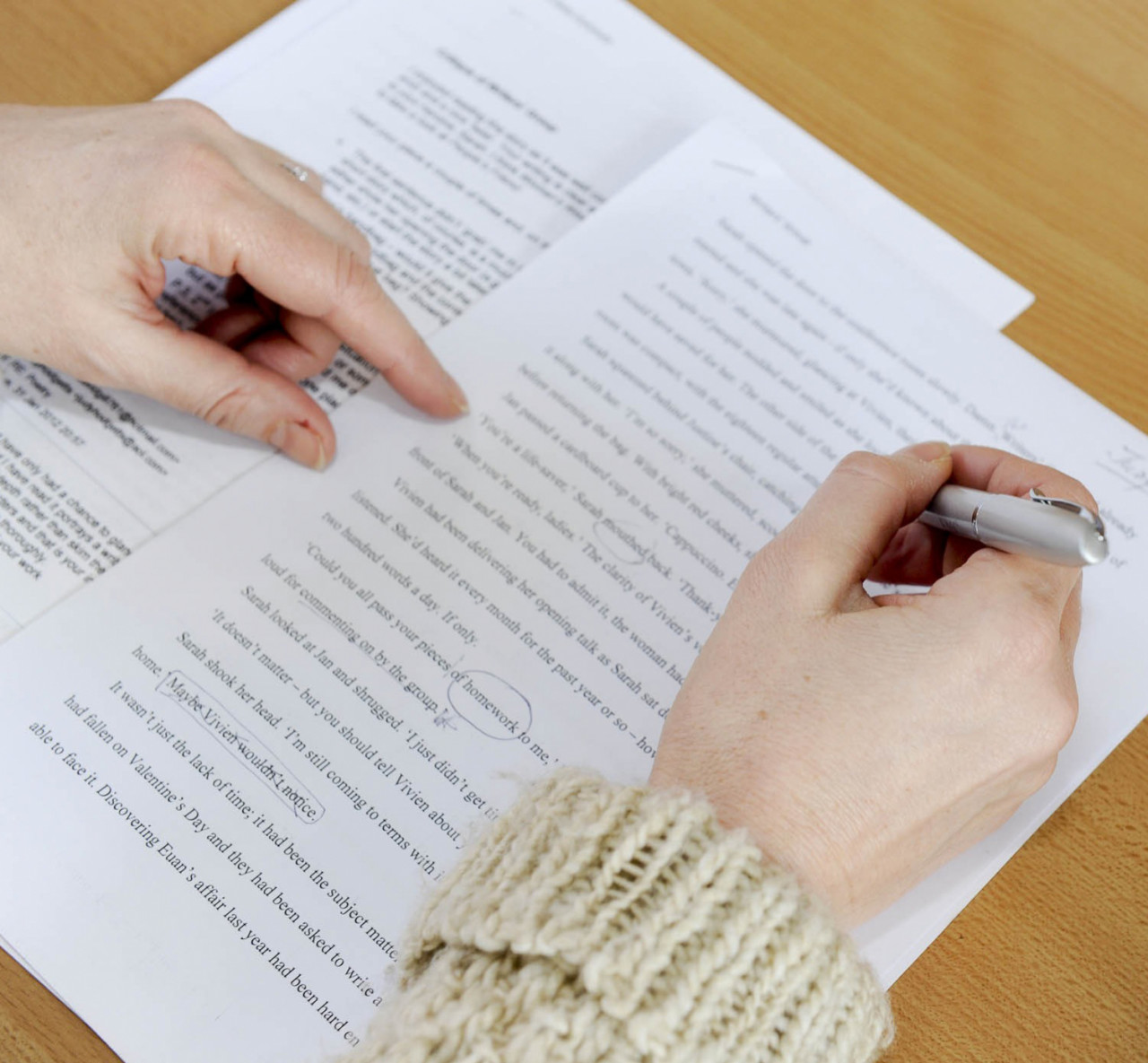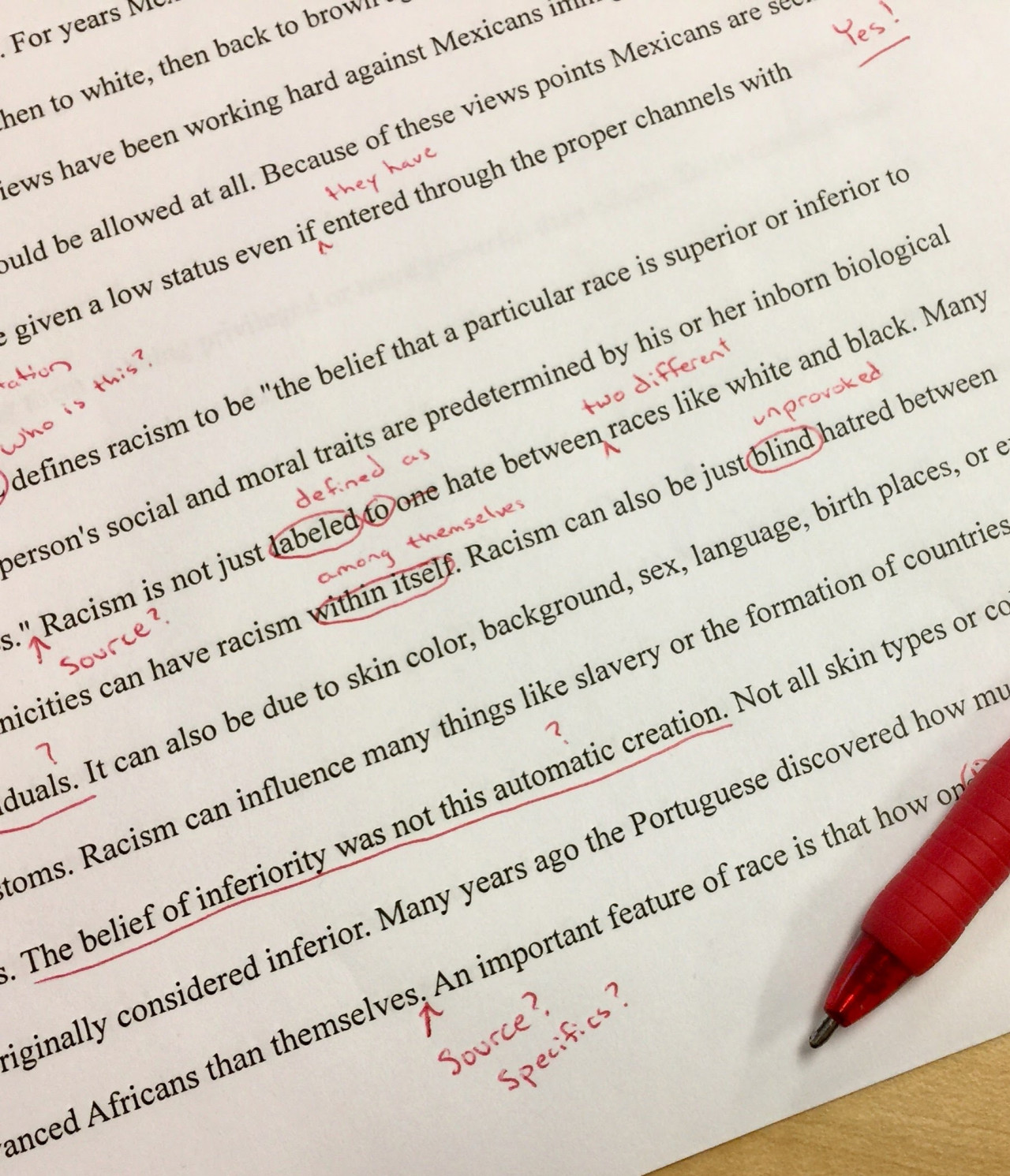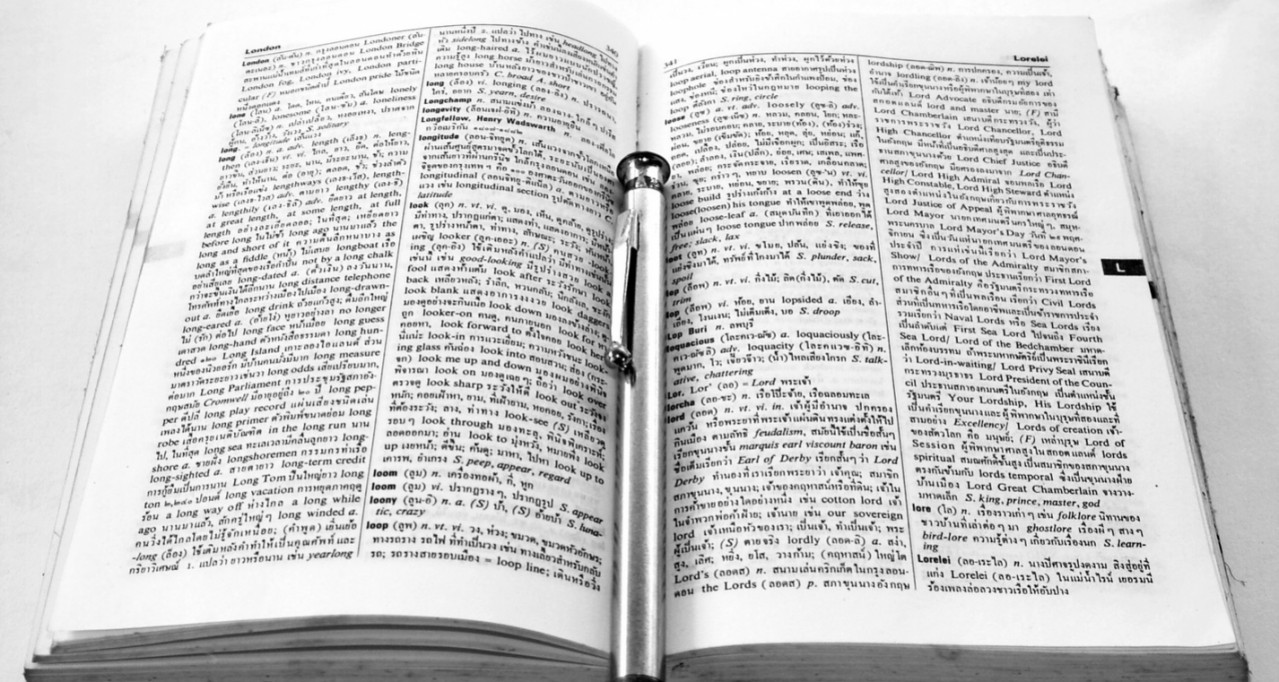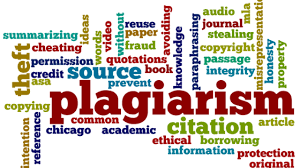Locked in Language's editing and proofreading services
Aside from teaching writing skills, Locked in Language also offers an editing and proofreading service. Every project is different, as is every writer but no matter the type of writing, it is true to say that the secret to successful writing is good editing. Whether you simply require a proof-reader to give your work a final check, or are in need of an editor for a more thorough review and in-depth edit of all your written content, we can help you with academic papers, essays, dissertations and theses; books or manuals; company / corporate documents, memos and reports; website copy and anything else you choose to write. Some projects need more work than others. To ensure you find the service you need, at a cost that is in line with the requirements of the job, our editing services are divided into three broad areas: proofreading, editing and academic papers.

Proofreading
This is the lightest level of involvement and is suitable for the final check before the text is published. A proofread does not include any text improvements. It is simply a read through to correct small errors before you submit or publish your work. A proofread alone, without any other editing, is only recommended if you are a strong writer and have thoroughly checked your work beforehand.
This level of service includes:
• Checking your grammar, spelling and punctuation for accuracy.
• Ensuring consistency in your writing, word choices and style, and compositional spacing. • Eliminating jargon and repetitious words.
Editing
Copy editing is recommended if you are not confident in your writing and grasp of English usage. It is recommended before submitting academic papers and essays, books or documents for review or publication. Copy editing is a more intensive process than proofreading which involves looking at the work as a whole and improving the writing style, sentence flow and overall structure. It is also here that the editor will read for meaning, checking whether the words and sentences used do convey the meaning you intended them to. The editor will consider whether your meaning might be improved by the substitution of different vocabulary or a change in sentence structure and suggest changes accordingly. An edit might involve some rephrasing of passages and reworking of complex sentences to improve readability or the clarity of an argument. After the copy edit, the text is returned to you to approve the changes and to attend to any other notes the editor has made. We offer three levels of editing, tailored to your needs.

Light
It is suitable for text written by fluent English speakers who are fairly skilled with the written word and do not need substantiate changes made to their work.
A light copy edit does not correct structural issues (logical argument, the arrangement of chapters, plot holes, etc) although the editor will insert margin comments to indicate where something may look like it needs more work or needs clarification.

Medium

A medium edit, which is a bit more hands-on than a light edit, may include more rephrasing and reworking of passages.
This level of editing is suitable for second-language English speakers or those who feel they want some help with the expression and clarity of their work.
It includes minor restructuring which might include suggesting moving paragraphs around, changing the heading levels, or suggesting new headings to clarify the content.
This level of editing includes all the services of a light edit and also includes more detailed checking of your logical argument and expression throughout your work.
In-depth
This is a substantial edit which is also sometimes called content editing because, in addition to text and grammar issues, it looks at the content and meaning of what is written.
The editor looks at the logical argument being expressed or the story being told and assesses whether it all fits together and works as intended. If not, the content editor will rephrase and rework sections of text, and might recommend that the author provide new text to fill in any gaps.
The editor will also attend to issues described under the light and medium editing columns. This level of editing is suitable for those who want substantial help with the text and a considerable amount of reworking and restructuring.


Dissertations and Theses
As a higher degree candidate, you should be capable of editing your own work to a certain extent.
However, even after you have edited to the best of your ability, a professional editor can still help you improve your grammar, flow and organisation which will greatly help improve your results when the work is sent to external examiners for final marking.
A dissertation or thesis which has been professionally edited contains far fewer mistakes and therefore fewer corrections to be made before you can submit the final thesis. If you only require your thesis to be proofread, please refer to that section for details of what we offer as part of a proofread only.
Scope of work
The secret to editing your work is simple: you need to become its reader instead of its writer. - Zadie Smith
This is probably the most important document you have written o date as will determine whether you pass your degree and your final grade. With this in mind, we're here to help you present the best version of you work possible.
When editing a thesis or dissertation, we will:
• Ensure that the table of contents is complete, consistent and matches the actual headings and page numbers in the document,
• Ensure that the spelling is consistent and correct,
• Check for grammatical errors,
• Make sure that punctuation is correct throughout,
• Check and correct the formatting of numbers and units of measure (please provide a key of those you have used - 1.2.1 vs I.II.I),
• Check tables in the dissertation correspond to the description of these given in the text,
• Ensure that totals and numbers are consistent each time they are mentioned throughout the text,
• Check the list of abbreviations corresponds with the abbreviations used in the text,
• We will also check the logical consistency and flow of your dissertation and flag anything which does not seem to flow or make sense within the context of the chapter.
• An editor will nearly always have questions about your dissertation and these will be inserted as comments at the side of the work.
• Good editing can make the difference between an average and excellent dissertation and while we can, and will, improve your writing, the contents of the work you submit to us will not be changed.
We will not add or remove any discipline-related content and you will, at all times, have control over which changes you choose to accept.
Reference checks
Reference checks While references are not usually checked during the editing process, we can check these if you ask us to.
This will include:
• Check and correct references and cross-references within the body of the work,
• Check the correct reference format has been used throughout the work,
• Check the bibliography for consistency and style,
• Ensure that all references in the text appear in the bibliography.
For this to be done, you need to include the reference guidelines approved by the tertiary institution and academic department or school you are studying through when sending it for editing.

Plagiarism
The editor will not check work for copyright infringement or plagiarism. The writer is solely responsible for the content of the work submitted for editing and as such, the burden of checking for and eliminating problem texts is the sole responsibility of the writer. This link will answer your questions: What is plagiarism.
Wondering when to quote, paraphrase or reword?
Read this quick article or this one.
The nuts and bolts of getting your work proofread or edited
Below you will find details of what our services cost, how to submit your copy and additional information you need to get the full value from our services.
Price list
NOTE: All prices are quoted in US$ on this website and are applicable to all clients. However, quotes will be sent in ZAR for South African clients.
- Proofreading (corporate rate): $3 per page with a maximum of 250 words.
- Proofreading (student rate with proof you are registered at an educational institution): $2 per page with a maximum of 250 words per page.
- Light editing: $4 per page with a maximum of 250 words per page.
- Medium editing: $5.50 per page with a maximum of 250 words per page.
- Heavy editing: $8 per page with a maximum of 250 words per page.
- Thesis/dissertation editing: $3.50 per page with a maximum of 250 words per page.
- Reference check: References within the text will be included in the editing charge. An additional charge of $1.50 per page.
- Appendices: $1.8 to $2.80 per page depending on the density of the content contained. This will be agreed with the client once an editor has assessed your appendices.
- Checking tables: $1.8 per page.
- Interview transcripts: $3 per page to a maximum of 250 words.
Privacy
Locked in Language is aware of the need for privacy between the editor and client. All information entrusted to us will be kept in strict confidence. Every document will be deleted from the Locked in Language system six (6) months after the completion of the work. We will not divulge your personal information or project details unless legally obligated to do so, or an academic institution requests copies of the work to verify the originality of the student's work.
Pricing notes for all copy
- Once you have indicated your need for one of our services, you will be sent a quote which will be valid for 48 hours.
- This quote will include the deadline for completion of the work to be done which you will need to check and confirm is acceptable to you.
- Your will need to agree to the quote, send your work in a Word document and pay a deposit of 50 per cent before we can commence work.
- The final payment will be due when you receive the corrected work.
- We can offer a five per cent (5%) discount if you pay the full quoted amount on acceptance of the quote before work commences.
- Word count, and additional items (reference pages, appendices etc) should be stated when you request a quote and will be confirmed in your quote which you will need to agree to before any word can commence.
- Locked in Language reserves the right to amend the quote if the word count or additional documents listed in your quote request where not accurate.
Submitting your copy
- Documents should be submitted electronically via email in Microsoft Word files.
- You will receive your documents back with all corrections and suggestions marked using Microsoft Word’s track changes feature.
- If you have selected one of our editing packages, the editor will use margin comments, to note anything that might need the author’s attention and may suggest deletions or additions of material where necessary.
- Once your receive your feedback, it will be your decision whether to accept these changes before submitting your work for marking, publication or dissemination.
Need a quote or a query answered?
If you have a query about one of our editing or proofreading services, or if you want a quote, please complete the form below with your first name and email address and a note about which service you are interested in.
If you need a quote, please tell us what you need proofread or edited, how long it is and when you need the project back.
Once we have read and assessed your query we will reply within 48 hours.
Alternately, send an email to Samantha Keogh at samantha@lockedinlanguage.com

